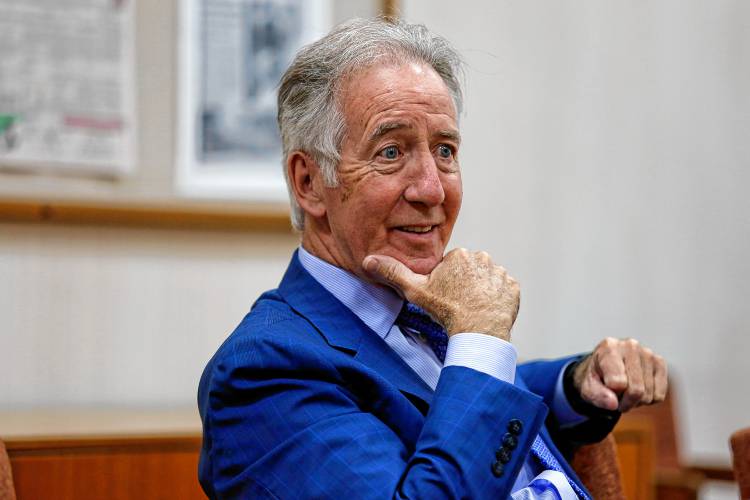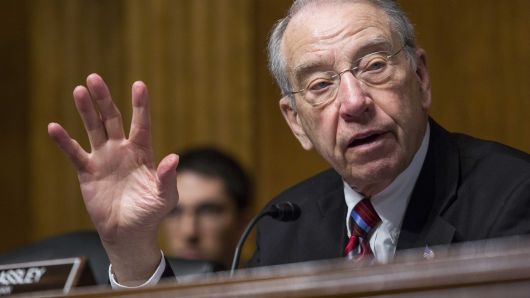By Bob Rapoza, President, Rapoza Associates
Congress established the New Markets Tax Credit in 2000 as part of the Community Renewal Tax Relief Act (106-554). In the intervening years, the 108th Congress, the 109th Congress, the 110th Congress, the 111th Congress, the 112th Congress, the 113th Congress, and the 114th Congress extended or otherwise increased NMTC credit authority. In other words, Congress – regardless of which party controlled the House, the Senate or the White House has never failed to extend the NMTC when the authority for the Credit was about to expire, or had recently expired. With the Credit is expiring at the end of 2019, the New Markets Tax Credit Coalition, its members and supporters are working to keep that record perfect.
In January, the 116th Congress took office with the Democrats in the majority for the first time since 2010 and the Republicans in continued control of the Senate. With tax reform in the rearview mirror, Members of both parties have an opportunity to take a fresh look at tax incentives.
In the House, the foremost Democratic leader for the NMTC, Richard Neal (D-MA), is now the Chairman of the Ways and Means Committee. In the Senate, Charles Grassley, who support an NMTC extension when he previously chaired the Finance Committee, returns to the Chairmanship.
NMTC extension bills in the House and Senate are proceeding apace. The New Markets Tax Credit Extension Act of 2019 – H.R. 1680, led by Reps. Terri Sewell (D-AL) and Tom Reed (R-NY), and S. 750, led by Sens. Roy Blunt (R-MO) and Ben Cardin (D-MD), both have strong bipartisan support with a majority of both the Ways and Means Committee and Senate Finance Committee as sponsors. In the last Congress, there were 103 cosponsors of the House NMTC bill, only six months into the session there are already over 90 on HR 1680; the Senate version had a total 21 cosponsors last time around, there are now 29 cosponsors of S. 750.
In June, the House Ways and Means marked up H.R. 3301, the Taxpayer Certainty and Disaster Tax Relief Act of 2019, which included extensions of some 40 temporary tax provisions. Credits that expired in 2017, 2018 and 2019 were all extended through 2020. For NMTC, HR 3301 provided a one-year extension, along with a $1.5 billion increase in credit authority to $5 billion.
In the Senate, Senate Grassley has convened several task forces aimed at assessing and recommending policy on the temporary provisions. The task force on Employment and Community Development is chaired by Sens. Rob Portman (R-OH) and Maria Cantwell (D-WA); both are original cosponsors of S.750. Of the seven members on the task force, five are cosponsors of S. 750, including Portman, Cantwell, Cardin, Scott (R-SC), and Cortez-Masto (D-NV).
The process now employed by Sen. Grassley is similar to that used in 2015 by then-Chairman Senator Orrin Hatch (R-NV), which ultimately led to the enactment of the PATH Act, and extended NMTC for five years.
While the Committees are moving forward, it is against a backdrop of confusion and disagreement on federal spending issues. Neither the House nor Senate approved a budget resolution, the blueprint for federal spending and tax policy, for the upcoming fiscal year, 2020. The House simply deemed a number for discretionary spending that exceeded the so-called sequester levels established by the Budget Control Act of 2011 and the Fiscal Year (FY) 2019 spending totals by over $170 billion. The Senate, hoping for an overarching agreement between the House, Senate, and White House has not acted on setting a topline number of domestic or discretionary defense spending. As this report goes to print, we are less than three months away from the end of the current fiscal year. And, a few weeks after that, the statutory debt limit, is set to expire.
Poised to break for the summer recess, the House, Senate and the White House agreed to a the Bipartisan Budget Act of 2019 (H.R. 3877), which suspended the soon to expire debt limit through July of 2021 and increased discretionary spending for defense and domestic programs by $320 billion above the levels set in the Budget Control Act (BCA) of 2011. Only $77 billion of that total is offset.
The BCA required offsets the increase in the debt limit in the fall of 2011. While in theory reductions were to come from entitlement cuts, tax revenue, and discretionary spending cuts, Congress and the White House could not agree to cutting programs like Social Security nor was there any common ground on revenue. As a result, the most of the reductions were targeted to discretionary spending, which only compromises 16% of the federal budget. In 2013, 2015, 2018 and now in 2019, Congress
and the president found ways to get around the caps and set-aside the across board cuts in discretionary spending required by BCA. The entire enterprise proved so ineffective that Congress threw in the towel. H.R. 3877 lets the BCA expire.
Achieving an agreement on discretionary spending is significant. In the House, the price tag for the Tax Cut and Jobs Act (TCJA) ($1.5 trillion) grates and getting a tax bill to the floor in the absence of a spending agreement would have proved challenging. However, other problems await. When the new House came took office, it adopted a rule called: PAYGO, which requires increases in entitlement spending – think Food Stamps or Medicare – or new reduction in tax revenue – think the NMTC – to be offset or paid for—by other changes in law or increases in tax revenue. When Republicans controlled the House, the rule was not in place, and tax cuts did not have to be paid for. The cost for neither the PATH Act ($720 billion revenue loss) nor the TCJA ($1.5 trillion in revenue loss) were offset by other revenue raisers. Having to comply with PAYGO made the task of assembling the HR
3301 more difficult and limited the maneuvering room the Ways and Means Committee to extend
credits like the NMTC.
The Senate does not have a PAYGO and if House and Senate tax bill managed to get on and off
the floor and into the conference that will be one more potential monkey wrench. In the end,
the biggest threat to the extension of the NMTC is the inability of Washington to act. Enactment
of the Bipartisan Tax Budget Agreement was an important step in the right direction.
Assembling a tax bill that can pass muster with the House, Senate and White House comes next.
Stay tuned.





